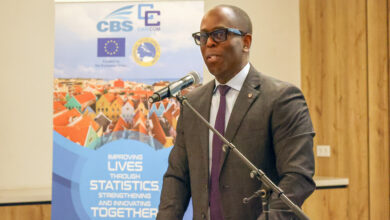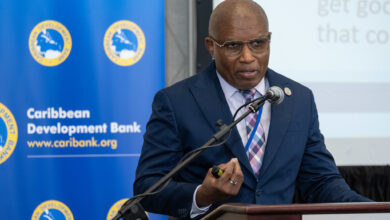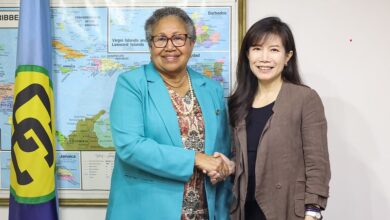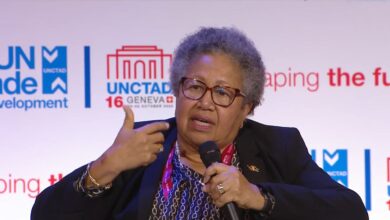(CARICOM Secretariat, Turkeyen, Greater Georgetown, Guyana) At its third meeting held in Haiti on 8-10 December, the CARICOM Commission on Youth Development (CCYD) noted the findings of qualitative research conducted among youth in several critical areas including youth governance structures.
An analysis of those findings revealed that the Community has put effective good governance structures in place for youth participation in decision-making processes at both the national and regional levels and that the structures allowed for capacity building in leadership.
The Study was conducted by Youth Commissioner Terri-Ann Gilbert Roberts on the relevance, functionality and responsiveness of national and regional youth governance structures across the Caribbean Community (CARICOM).
Her findings revealed that youth governance structures within the community though quite relevant and effective could be further streamlined for greater efficiency and targeted contributions to youth development.
At the regional level, she said the CARICOM Youth Ambassador programme served as an effective mechanism for youth leadership development and was strategically positioned to facilitate an integrated approach to youth development. However, she noted that the CYA programme required greater ownership and support from Departments responsible for Youth Affairs and that greater collaboration needed to be cemented between youth ambassadors and other youth organisations in their respective countries.
Ms Gilbert-Roberts also pointed to evidence which indicated that at the national level, departments of youth affairs were exceptionally creative and committed in responding to the developmental needs of their constituents; however the administrative capacities of those departments should be strengthened to allow them to respond even more effectively to the developmental needs of youth.
The priority action she recommended was the development of arrangements for the seamless integration of youth governance structures at both the national and regional levels within a coherent framework across CARICOM Member States for the systematic involvement of youth at all levels. The recommendations from the Study will form part of the Report that is to be discussed at the Special Council for Human and Social Development (COHSOD) in May 2009 before it is presented to the Conference of Heads of Government of the Caribbean Community in accordance with the mandate given to the Commission by that Conference “provide a full scale analysis of the challenges and opportunities for youth in the CARICOM Single Market and Economy (CSME) and to make recommendations on how to improve their well-being and empowerment.”





